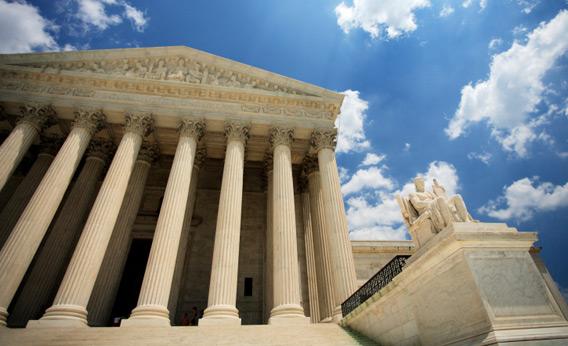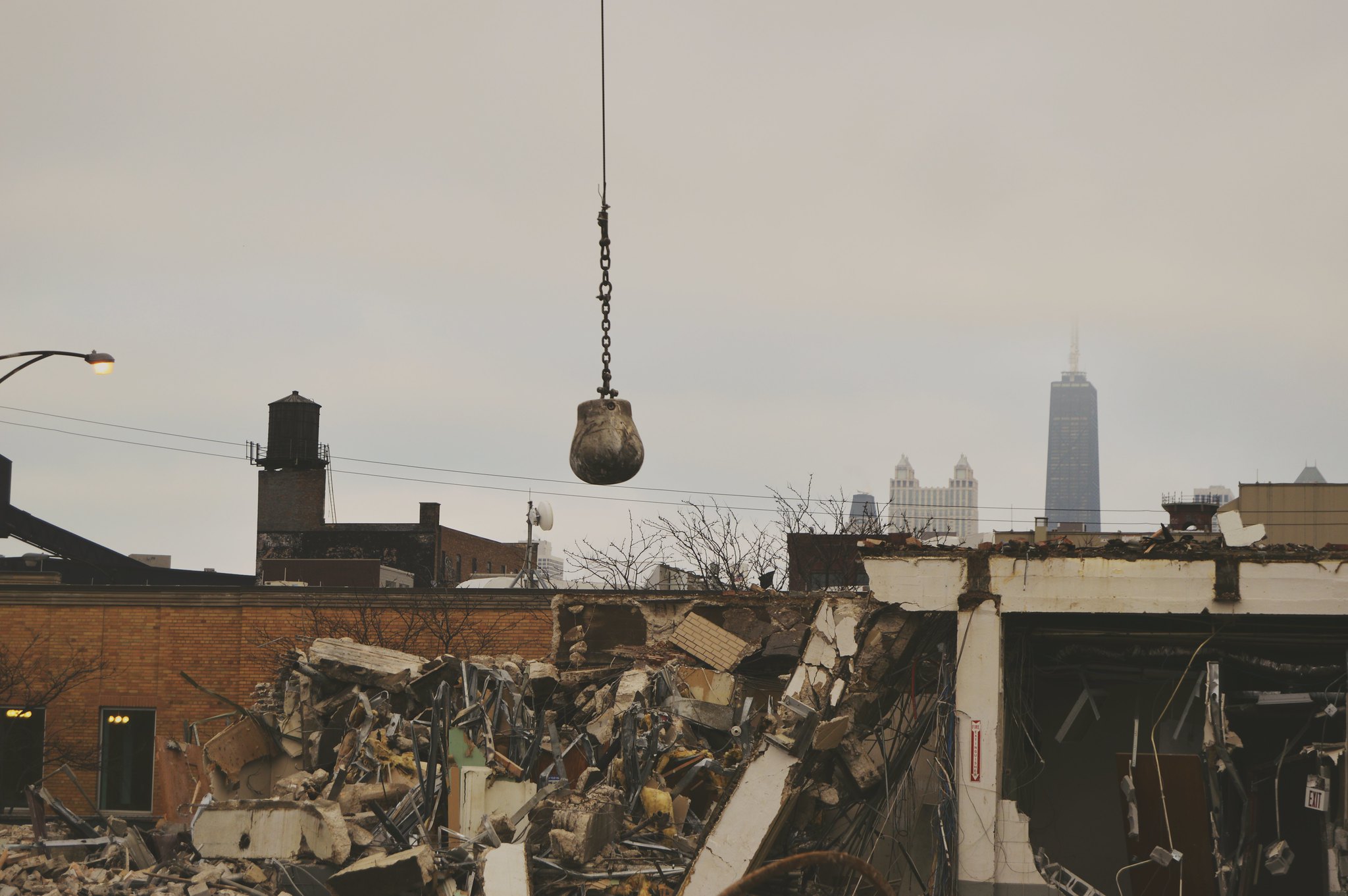Index to posts in this series
We’ve looked at two early cases interpreting the Reconstruction Amendments, The Slaughterhouse Cases and US v. Cruikshank. These cases are still in force, and have done massive damage, to Black people especially and others who hoped to gain their rightful freedom; to the balance of power among the three branches of government; and to our jurisprudence. Recent 2nd Amendment cases are good examples of this damage.
Gun control
Recapitulation of the old cases. In The Slaughterhouse Cases the Supreme Court analyzes §1 of the 14th Amendment (text below). The second sentence bars states from abridging the privileges or immunities of “citizens of the United States”. The Court says this provision applies only to the tiny number of privileges or immunities that attach to people solely as citizens of the US. It doesn’t apply to their rights as citizens of a specific state.
The Court says that the !4th Amendment doesn’t change the relationship between state and federal governments. 83 US 77-78. It’s a negative argument: such a monumental change must be in very clear language, and this isn’t clear enough to suit the Court.
In Cruikshank, the Court examines the rights which the defendants allegedly illegally conspired to violate. One is the right to keep and bear arms for a lawful purpose. Here is the Cruikshank Court’s entire discussion of that issue.
The right there specified is that of ‘bearing arms for a lawful purpose.’ This is not a right granted by the Constitution. Neither is it in any manner dependent upon that instrument for its existence. The second amendment declares that it shall not be infringed; but this, as has been seen, means no more than that it shall not be infringed by Congress. This is one of the amendments that has no other effect than to restrict the powers of the national government, leaving the people to look for their protection against any violation by their fellow-citizens of the rights it recognizes, to what is called, in The City of New York v. Miln, 11 Pet. 139, the ‘powers which relate to merely municipal legislation, or what was, perhaps, more properly called internal police,’ ‘not surrendered or restrained’ by the Constituton of the United States.
Citing several older cases, the Court says that the 2nd Amendment does not guarantee the right to keep and bear arms; all it does is bar the US from infringing on that right. It says that states can regulate the ownership of arms as part of their police power.
To summarize:
1. The 14th Amendment didn’t change the power relations between the state and federal governments.
2. Rights not specific to the Constitution are solely the domain of the states under their police power.
3. The 2nd Amendment does not grant any rights to anyone. It merely prohibits the US from infringing the right to bear arms.
4. Any important change in the laws or Constitution must be clear enough to suit the Supreme Court.
Current cases. Eventually the Supreme Court started applying the Bill of Rights to the states using the Due Process Clause. By the time Heller v. Dist. of Columbia was decided, most of the Bill of Rights had become more or less applicable to the states.
In Heller Scalia cites Cruikshank approvingly. He writes: “States, we said, were free to restrict or protect the right under their police powers.” He completely ignores the holding of Cruikshank and several older cases that the only function of the 2nd Amendment is to prohibit the US from infringing the right, as well as the holding that the right does not arise from the Constitution. He simply imposes his own textualist reading of the 2nd Amendment as if it were written today instead of 240 years ago.
A few years later in Macdonald v. City of Chicago Alito put SCOTUS in charge of controling state power over guns. The Seventh Circuit had upheld Chicago’s gun regulations, relying in part on Cruikshank. Alito says the issue is: “… whether the Second Amendment right to keep and bear arms is incorporated in the concept of due process,” an issue not considered by the lower courts. Cruikshank isn’t applicable because it only considered the Privileges or Immunities Clause.
Alito gives a short history of cases applying the Due Process Clause to the Bill of Rights starting with this: “The constitutional Amendments adopted in the aftermath of the Civil War fundamentally altered our country’s federal system.” He doesn’t tell us what that change is, or how it applies to guns.
He cites Heller for the proposition that the 2nd Amendment creates a right to bear arms. Then he announces that the right to and bear arms is covered by the Due Process Clause. There isn’t really an explanation for this. Alito just says it’s, like, you know, fundamental to the concept of ordered liberty, amirite, for every American to carry a gun for “self-defense”. Like this guy.
Then in Bruen, Clarence Thomas says that the only allowable limits on the the right to keep and bear arms are those the states imposed prior to either 1789 or 1868. Whatever that right was, the states obviously regulated it under their police powers, but Thomas doen’t even mention Cruikshank and The Slaughterhouse Cases. I guess Macdonald says it was unconstitutional for states to regulate guns after the ratification of the 14th Amendment, even though they had that right under Cruikshank and used it for 130 years.
Conclusion. The end result is that we can only regulate guns if five members of the NRA Court permit it. And now we learn that Bruen didn’t slake the blood lust of Thomas, Alito, Gorsuch and Kavanaugh. They want to flood the country with ghost guns.
Why Not Overrule Those Old Cases?
I think one reason SCOTUS doesn’t overrule Cruikshank and The Slaughterhouse Cases is that it would change our understanding of our dual sovereignty system. In The Slaughterhouse Cases the Court said that a broad interpretation of the 14th Amendment “…would constitute this court a perpetual censor upon all legislation of the States, on the civil rights of their own citizens, with authority to nullify such as it did not approve as consistent with those rights, as they existed at the time of the adoption of this amendment.” Of course SCOTUS is already doing that, as in gun regulation cases.
But if we dropped the pretense that the states are the dominant power in deciding the rights of citizens, SCOTUS would lose one of its go-to arguments against federal laws it doesn’t like. Dobbs, for example, says that the right to abortion should be decided by the states. Section 5 of the Voting Rights Act offends the dignity of the states (no, really), according to Shelby County v. Holder. And in NFIB v. Sebelius, SCOTUS says that the US can’t pressure the states to provide Medicaid to all their citizens, who, I note, are also citizens of the US, because state dignity is so important to suffering people.
There’s another possibility. The right-wing six simply don’t care about any of the traditional pillars of jurisprudence, such as stability, deference to the other branches, institutional reputation, and procedural constraints on power. And they’re careless. They don’t even try to be coherent or to clean up the loose ends of precedent that held for 150 years, or to create workable rules. See part IIIB of Breyer’s dissent in Heller and the dangers to society created by Bruen, as in the Rahimi case.
It’s bad enough that we’re goverened by five or six unelected lawyers. It’s worse that tbese second-rate people do such shoddy work.
———————
Section 1 of the 14th Amendment
All persons born or naturalized in the United States, and subject to the jurisdiction thereof, are citizens of the United States and of the State wherein they reside. No State shall make or enforce any law which shall abridge the privileges or immunities of citizens of the United States; nor shall any State deprive any person of life, liberty, or property, without due process of law; nor deny to any person within its jurisdiction the equal protection of the laws.




